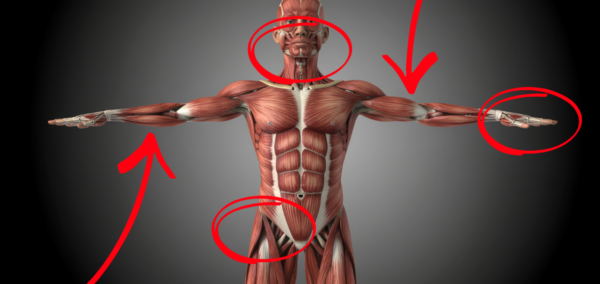PETA crashes Bristol University open day calling for the end of ‘cruel’ forced swim tests
Several subject talks were interrupted by activists urging prospective students to ‘please consider this before you choose this university’
PETA activists have staged another protest against the University of Bristol’s use of “forced swim” animal testing at the university open day yesterday (26th October).
Protestors interrupted four separate subject talks for prospective students, calling upon the university to stop the practice of the controversial forced swim tests.
They criticised the continued use of this “cruel” experiment and urged those in the audience to consider this when choosing their university.
In the footage shared online by @PETAUK, the activists held signs that read: “Bristol Uni: Drop the Forced Swim Test”.
Bristol Uni’s open day or open shame?
Prospective students and families need to know the truth: animals are being put through near-drowning “tests” on campus. The forced swim test is outdated, pointless, and cruel 🐁 #BristolBeNiceToMice pic.twitter.com/xtP6UjlAOX
— PETA UK (@PETAUK) October 26, 2024
One of the posts, capturing a protest in a history subject talk, is captioned: “Bristol Uni’s open day or open shame? Prospective students and families need to know the truth: Animals are being put through near-downing ‘tests’ on campus. The forced swim test is outdated, pointless, and cruel.”
The video captures the protestor walking to the front and addressing the audience: “This university tortures rats and mice in cruel near-drowning experiments.
“Bristol University must drop the forced swim test now.
“And I’d like to think that the good people in this audience wouldn’t want to be associated with a university that tortures animals; I think we can all agree with that.”
As he walked away, there was some applause in the crowd.
In another video, a different PETA activist can be seen ambushing an “Introduction to Medicine MBChB” talk.
#BristolBeNiceToMice 🐁 https://t.co/hCuwOBEUmf pic.twitter.com/R5zhL6n0Rr
Most Read
— PETA UK (@PETAUK) October 26, 2024
The activist explained: “Bristol University conducts the forced swim test. Mice and rats in near-drowning experiments, they put these small animals in cylinders for up to 15 minutes, they nearly drown, then they take them out and they are decapitated.
“Many universities across the UK have banned the forced swim test, but Bristol Uni continues to do it.
“If you saw your neighbour or your friend doing this to a small animal, you would call the police.
“It is not science, it is violence and animal abuse, and it is outdated and it must end, Bristol must end the forced swim test, enough is enough.”
She then urged the audience to contact vice-chancellor Evelyn Welch if they disagreed with the forced swim test practice.
In a different subject talk, another PETA activist urged students to consider the university’s practice of the test when making decisions about their higher education.
He said: “I am a Bristol graduate, and I am ashamed and disgusted that the university refuses to drop these cruel experiments.
“Please consider this before you choose this university: the swim tests are unnecessary and cruel; please stop these experiments.”
In addition, activists were stationed around the campus, handing out leaflets, carrying signs, and speaking on megaphones.
According to the PETA website, the activists at the event “educated guests about the severe distress rats are subjected to during the near-drowning experiments, which ultimately end with the animals being killed and dissected”.
This is the third ambush since the start of term, and PETA has accelerated its campaign on social media, with #BristolBeNiceToMice on X.
The controversial test involves placing rats or mice in an inescapable long cylinder of water and measuring their response to stress. It is used to study the impact of potential antidepressants on behavioural despair.
The university has previously received vocal criticism from PETA, who deemed it “bad science”. Scientists at the Medicines and Healthcare Products Regulatory Agency (MHRA) have also claimed that it is “no longer considered a model of depression”, concluding that it cannot predict the efficacy of new antidepressants.
On 11th September, the Home Office minister, Dan Jarvis, announced that the government “intends to completely eliminate the use of the forced swim test”. This came after Dan Norris, MP for North East Somerset and Hanham, brought the topic to the Home Office in August.
Dan, who is also chair of the board of trustees at the League Against Cruel Sports, said: “I urge the University of Bristol to get on the front foot and use this opportunity to stop tormenting gentle animals in the name of ‘science’.”
PETA’s campaign since 2021, against the university’s use of the test, has gained many notable celebrity endorsements, such as Will Poulter, Joanna Lumley, Mark Rylance, Richard E. Grant, and, most recently, Anjelica Huston. They have also made considerable gains within the government.
A University of Bristol spokesperson said: “We recognise there are differing views about the use of animals in research, including some concerns around whether it is ethical. Where possible we rely on non-animal methods, but when these are not suitable to address scientific gaps in knowledge, we use animals in order to improve our understanding of health and disease – this includes neuroscience, and diseases associated with mental health.
“The forced swim test or forced swimming are experimental procedures used by researchers at the University of Bristol to understand the neurobiology of stress. The test, for which no non-animal alternatives exist, has been approved as a valid model to study the processes underpinning how the brain deals with and adapts to stressful challenges.
Related stories recommended by this writer:
- Celebrating Black History Month with seven of Bristol’s most influential Black alumni
- Bristol Student’s Union takes action for Student Renters’ Rights during National Lobby Day
- Go on, Bristol: Cop a feel! A chat with CoppaFeel about breast cancer awareness
Featured Image via @PETAUK on X.


















